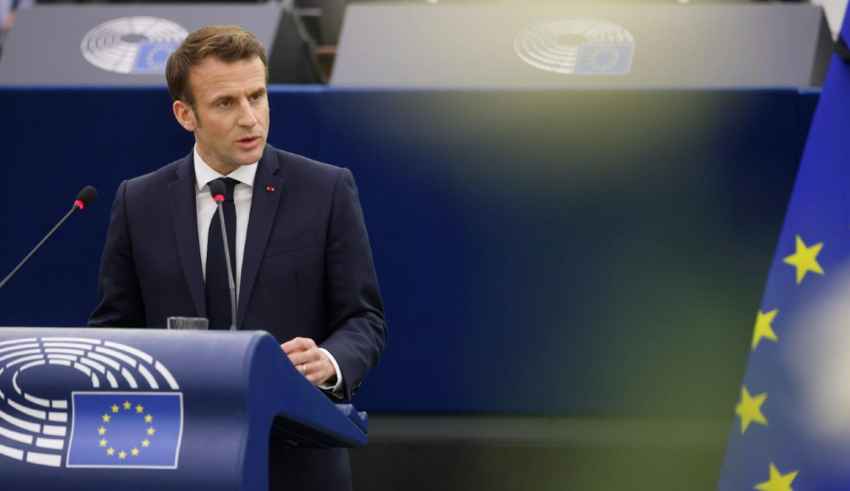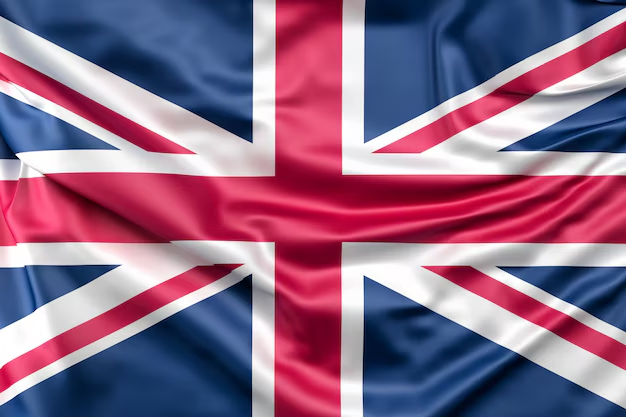
France has had to shake up its ambitious plans for the EU, following Russia’s invasion of Ukraine. A crisis that did not prevent the country from reaching agreements on important issues. This is how to sum up the six months of the French Presidency of the Council of the European Union, which ends today, June 30th. French diplomats must pack their bags before leaving Brussels and handing over the unfinished business to their Czech counterparts, whose country takes over the rotating presidency until December 31st.
Launched with great momentum by Emmanuel Macron’s speech to the European Parliament on the 19th of January, this Presidency was intended to be ambitious. A little too much, surely. Reform of the Schengen area, European defense, climate, minimum wage, brooding on the institutions… The French roadmap was dense, especially since the president wanted to include a re-thinking on the future of the Union. Although, the role of the Presidency of the Council of the EU is above all to smooth things over by obtaining compromises between the 27, the Commission and the Parliament, which aims to advance European legislation.
However, geopolitical news collided with the ambitions of Emmanuel Macron and Clément Beaune, then Secretary of State for European Affairs, on February 24th, when Russia invaded Ukraine. Priorities changed and France found itself forced to coordinate the European response to the conflict. “The French presidency has helped to keep the EU unified during the war and to pass, in a very effective way, the first five packages of sanctions against Russia” said Nicolai von Ondarza, head of the Europe Division of the German Institute for International and Security Affairs (SWP – Stiftung Wissenschaft und Politik).
An opinion shared behind the scenes in Brussels, where it is believed to have been able to rely on French know-how in diplomacy. It’s a good thing that France had the head of the Council, first because it was part of the Normandy format (the meetings that brought together France, Germany, Ukraine and Russia during Moscow’s invasion of Crimea in 2014), but also because it carries political weight and has moderate views. Finding compromises would have been more complicated if one of the Baltic countries, for example, had been at the head of the Council.
France has shown flexibility, especially on its own sticking points. Long opposed to the enlargement of the EU without a prior reform of the functioning of the institutions, it finally accepted a compromise on the granting of candidate country status to Ukraine and Moldova.
Many texts were adopted
However, the war in Ukraine did not determine all the contours of this EUFP. The French presidential election in April and the legislative elections in June also had an impact on the Parisian program. From the beginning, France had concentrated most of the important initiatives in the first three months. As a result, Emmanuel Macron, who was very present in Brussels from January to March, retreated into national politics from April onwards, even though, in the European institutions, French diplomats and negotiators continued to work. In general, it was felt that Europe was a priority for the Elysée. In detail, the 27 countries agreed on June 7 on new rules to set decent minimum wages in the various member countries. This is an important measure from a political point of view. But it’s still uncertain how it is implemented in the Member States. Minimum wage would include price of living going up in those countries. For a remainder the only countries in the Union that don’t have minimum wage are Austria, Italy, Denmark, Cyprus, Finland and Sweden. Those aren’t the countries that pose the biggest social/economic concerns. Considering minimum wages vary between 332 euros in Bulgaria and 2202 euros in Luxembourg, maybe the problem isn’t minimum a wage across all of EU but more inequality among the wages themselves.
To continue, the issue of European defense. One of the priorities of Paris, has also largely advanced thanks to the adoption of the strategic compass, a document that defines the threats facing the EU, such as Russian aggressiveness or the double game of China, and how the Union must respond. The climate package and the “adjustment to the target 55”, which aims to reduce greenhouse gas emissions by 55% by 2030, has also largely advanced, with the Council of the EU even reaching a compromise on several texts on June 27th. That can count as a success for the French Presidency, just like the political agreement found about the carbon tax at EU borders.
Finally, Paris has not managed to find a compromise around the regulation of digital services, whose goal is to better control the content shared online by imposing new rules on Gafam, one of its priorities. The text now needs to be finalized by the Czech Presidency.
Economic reforms slowed down
On that front, it isn’t right to consider it a massive result. This relative success of the French presidency is largely due to an efficient administration and good negotiators. It has a little less to do with the leadership of Emmanuel Macron.
Moreover, the French ambition did not bear fruit on all subjects. France had prepared a plan to reform migration policy, but this was completely put aside, probably because of the war in Ukraine. Another disappointment was the Hungarian veto on the minimum tax on multinationals, which really bothered the French. While an agreement on this minimum tax of 15% on profits seemed almost done. But considering the role of the Presidency mentioned above, it was the French’s task to smooth negotiations. And not swift the problem over to the next Presidency.
In the end, the desire for economic reforms, in particular the questioning of the Stability and Growth Pact or the implementation of a second post-Covid-19 recovery plan, was dashed. It’s simple, we’ve completely changed the subject. Who recalls that the March 11th summit in Versailles, which was supposed to focus on economic issues, was finally devoted to Ukraine and questions of energy independence. A change in the program allowed the 27 to make rapid progress on these last two topics. It is agreeable to attack the more urging concerns, but the post-Covid-19 recovery plan isn’t something that should be neglected at all.
The Conference on the Future of Europe fell flat
Another failure was the assessment of France’s promises to transform the EU. Six months later, very little progress has been made. What began as a good idea, just dried out in the process. The Conference on the Future of Europe brought together European citizens chosen by lot to brainstorm on the future of the EU. In the end, the conclusions were hijacked by the Parliament, which used them to demand a change in the treaties. Even if Macron is for it, he did not succeed in getting the other countries to agree. And in the end, it all fell flat.
The observation is the same for the European Political Community, proposed by Emmanuel Macron. The other members were reluctant to accept the idea of a new institution that would include countries neighbouring the EU, such as Ukraine or the United Kingdom. A proposal that has so far received little enthusiasm, but which has the merit of existing.
Noticeable is that France has been strong enough to make people talk about new concepts such as the European Political Community or strategic autonomy. They have dominated the debates. This is a good thing, because we need new visions for the EU and we need to move forward on these topics.
The French presidency of 2022 will in any case have been better conducted than that of 2008, during which Nicolas Sarkozy had wanted to put himself at the center of the game during the conflict in Georgia. It is now up to the Czech Republic to take up the baton and move forward on current issues, including climate, the economy, energy security and the ongoing consequences of the war in Ukraine.
https://www.swp-berlin.org/10.18449/2022C11/
https://www.ceps.eu/the-good-the-bad-and-the-ugly-of-the-conference-on-the-future-of-europe/
By The European Institute for International Law and International Relations.














